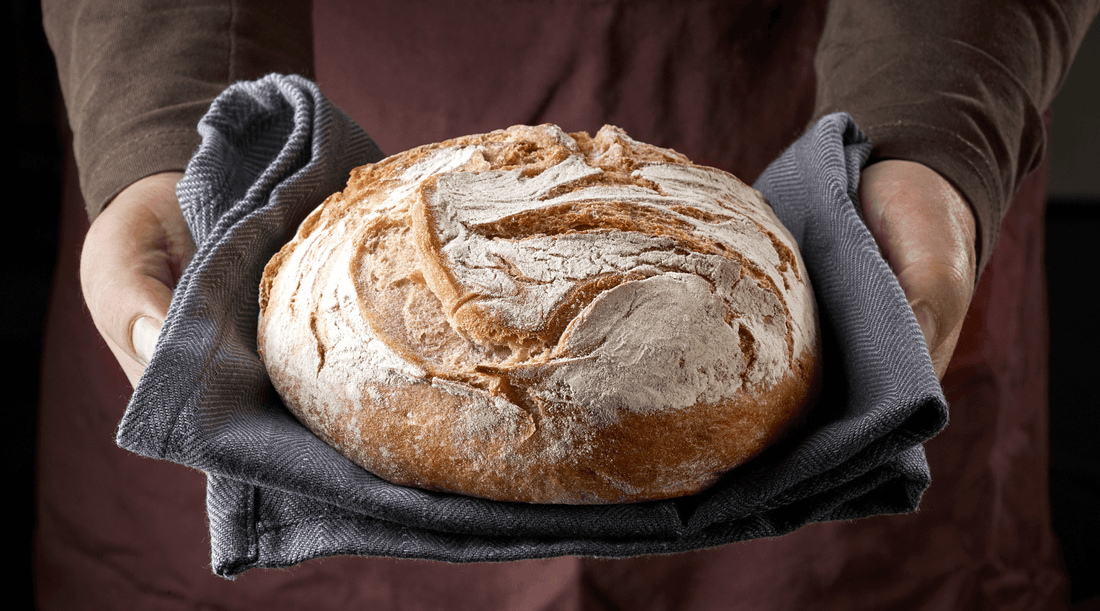Welcome to the Scratch blog, where baking enthusiasts turn their passion into perfection! Based in Phoenix, AZ, Scratch is dedicated to elevating your baking experience with top-notch ingredients. Today, we're diving into a common baking query: Does moisture help dough rise? Let's explore this, and how our Scratch Premium Dough Conditioner can transform your baking!
The Role of Moisture in Dough Rising
Understanding Dough's Love for Humidity
Does dough need humidity to rise? Absolutely! Moisture plays a critical role in activating yeast, the magical ingredient responsible for dough rising. Humidity ensures a warm and moist environment, ideal for yeast to thrive and produce the gases that make dough rise.

Why High Hydration Dough is Better
When it comes to high hydration dough, the benefits are clear. More water content results in a dough that's not only easier to handle but also leads to a lighter, airier bread with a superior crumb structure.
Dough Rising Challenges and Solutions
Handling Dry or Cold Environments
But what if you're making dough in a cold house or dry climate? Fear not! You can create a makeshift proofing box in your oven with a bowl of hot water, or simply let your dough rise in a slightly warmed microwave.
The Ideal Conditions for Rising Dough
Room Temperature vs. Refrigeration
Where to let dough rise is a common dilemma. Room temperature is generally best for a quick rise, but for more flavor development, letting your dough rise overnight in the fridge is a fantastic option. Just remember, the key is consistency in temperature and humidity.
Introducing Scratch Premium Dough Conditioner
The Secret to Consistent, High-Quality Dough
Now, let's talk about a game-changer: Scratch Premium Dough Conditioner. This 2 lb miracle worker is your secret to creating smoother, longer-lasting bread loaves with a consistent texture.

Easy to Use for Any Flour
Whether you're tackling whole wheat or all-purpose flour, just add 1 teaspoon of our conditioner per cup of flour. The result? Bread that's professional in texture and taste, every time.
Why Our Dough Conditioner Stands Out
Creating the Perfect Environment for Rising Dough
Our conditioner strengthens gluten and starch, which is crucial for dough rising efficiently. It addresses questions like "What causes dough not to rise?" or "What happens if dough is dry?" by ensuring your dough has the ideal internal environment for a perfect rise.
The Art of Perfect Dough Rising
Timing and Temperature Tips
How long should you let dough rise? It varies, but typically until it doubles in size. Be aware that temperatures above 140°F (60°C) kill yeast, so keep that in mind to avoid under-risen dough.
Understanding Dough's Needs
Knowing when your dough has risen enough is crucial. It should be soft, slightly puffy, and not overly sticky. And remember, dough doesn't have to be airtight to rise, but it should be covered to retain moisture.
Referencing Our Expertise
Don't forget to check out our previous article, "The Importance of Dough Conditioner in Baking Bread: Types, Ingredients, and Tips," for more in-depth insights into the world of dough conditioners.
Conclusion
Understanding the impact of moisture on dough rising, coupled with the right ingredients like Scratch Premium Dough Conditioner, can transform your baking. Experiment, have fun, and trust Scratch to bring professional-quality ingredients right to your kitchen. Happy baking!



